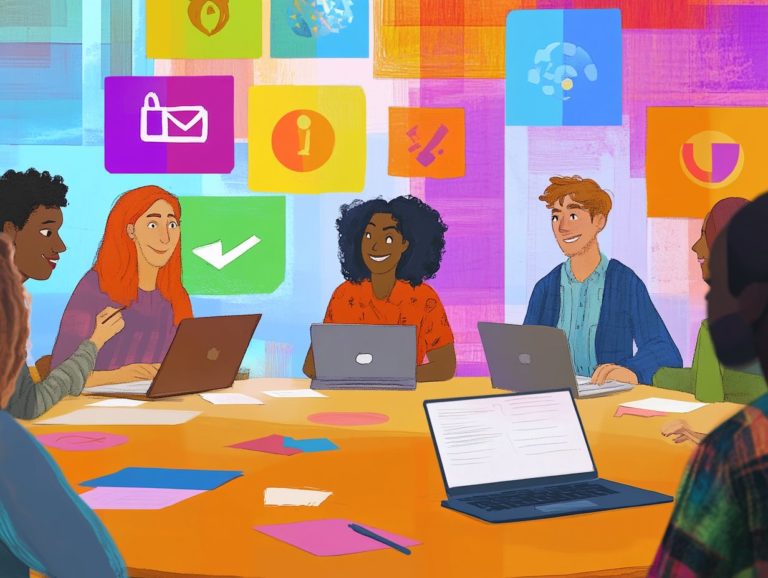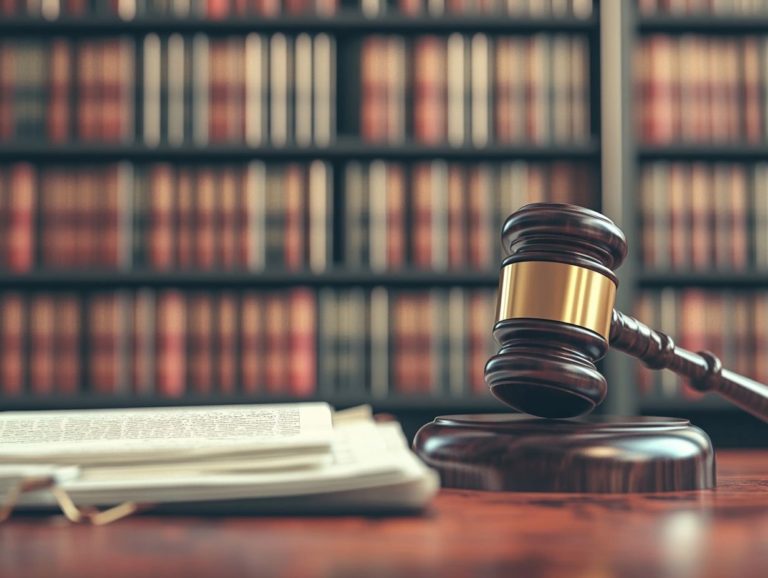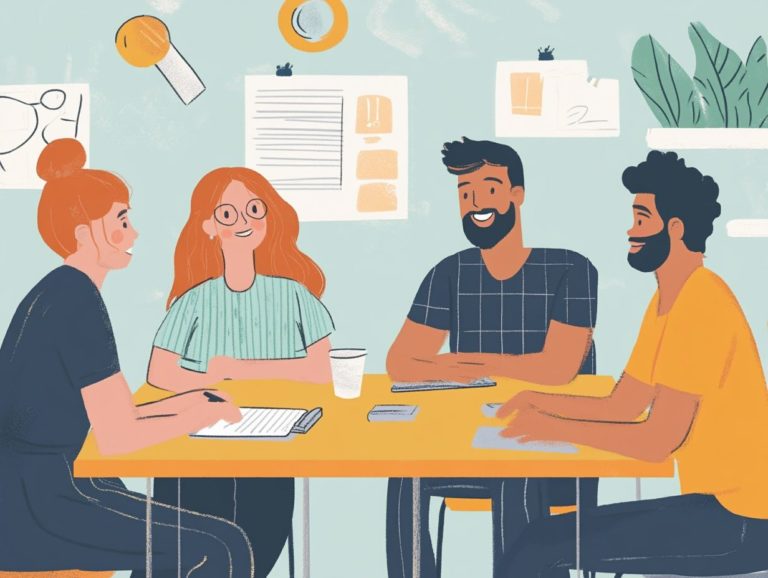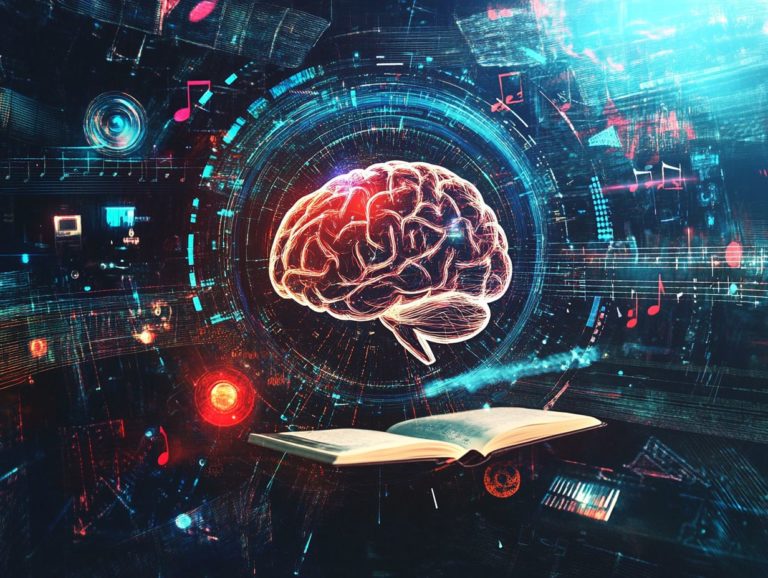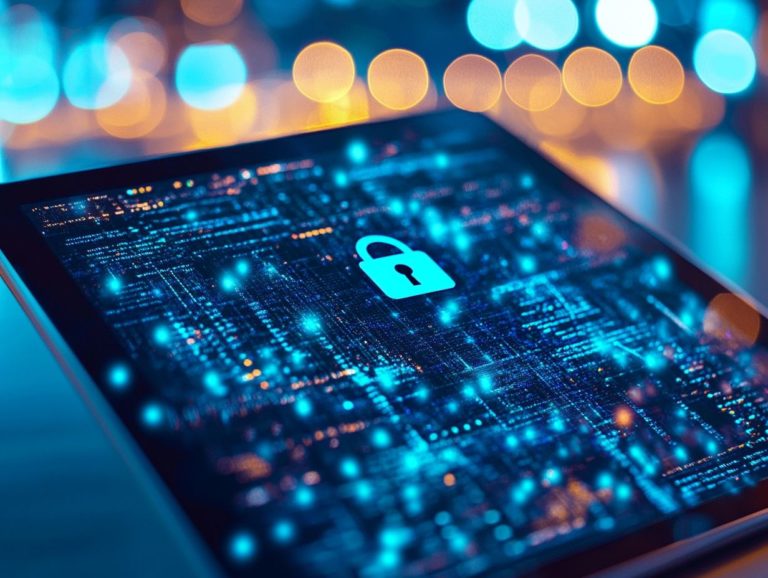How Copyright Affects Software Development
In the rapidly evolving realm of software development, grasping the details of copyright is essential for both you and your organization. Copyright defines the ownership of code and innovations, significantly influencing the landscape of creativity and competition within the tech industry.
This article delves into the fundamentals of copyright, the laws that govern copyright, and how they affect software development covering everything from ownership and licensing to navigating the complexities of infringement issues.
By exploring best practices and potential pitfalls, our goal is to equip you with the insights you need now to protect your creations.
Contents
- Key Takeaways:
- Understanding Copyright in Software Development
- Copyright Laws and Regulations
- How Copyright Impacts Software Development
- Navigating Copyright Issues in Software Development
- Best Practices for Complying with Copyright Laws
- Frequently Asked Questions
- 1. How does copyright affect software development?
- 2. Does copyright affect open source software development?
- 3. How can copyright protect my software?
- 4. How long does copyright protection last for software?
- 5. Can I use copyrighted software in my own projects?
- 6. How can I avoid copyright infringement in my own software development?
Key Takeaways:
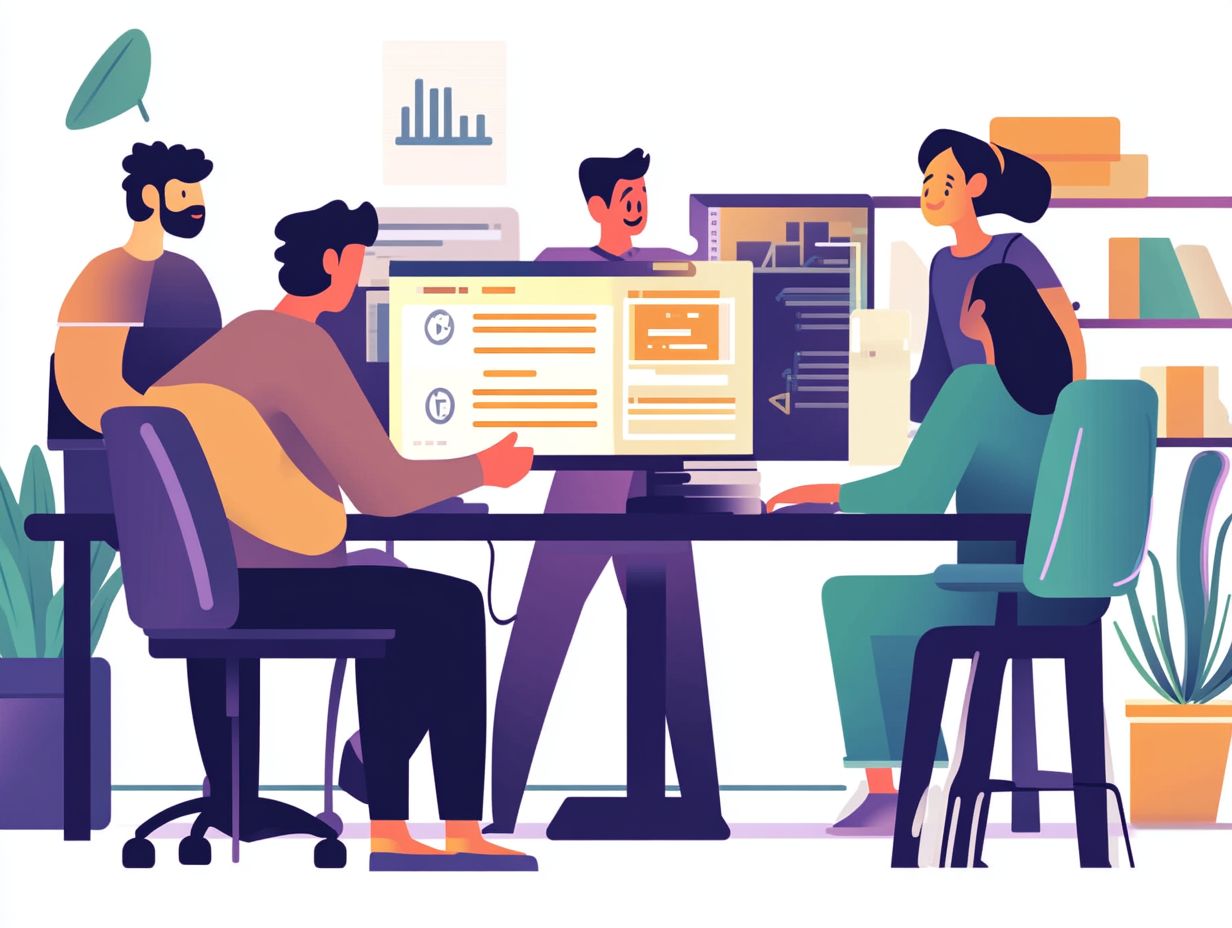
Copyright is a legal protection that grants exclusive rights to creators of software, allowing them to control its distribution and use. In software development, understanding and complying with copyright laws and regulations is crucial to avoid legal issues and protect your creative works. To navigate copyright issues, developers must properly license their software and handle disputes through proper channels, while following best practices for compliance.
Understanding Copyright in Software Development
Understanding the role of copyright in software development is essential for you to protect your original works while navigating the intricacies of copyright law.
The software industry is expanding. Challenges like unauthorized copying and copyright infringement can threaten your legal rights.
By grasping the details of copyright protection, you can more effectively safeguard your creative works and implement strategic software licensing practices that align with the regulatory landscape governing software applications and source code.
Defining Copyright and its Scope
Copyright serves as a robust legal framework designed to protect original works, including software code, from unauthorized copying and distribution. It ensures that the rights of the copyright holder are upheld, providing a strong foundation for creators.
This protection grants you exclusive rights over your work, allowing you to control its reproduction, distribution, and public performance. The scope of copyright encompasses various forms of creative expression, including literary works, music, visual arts, and digital content.
In the world of software, copyright specifically safeguards both the original source code and object code. Object code is the machine-readable version of your source code, affirming that programming languages are indeed considered literary works.
For you as a developer, this means you have the legal backing to defend your innovations against infringement and unauthorized use. This creates a barrier that encourages creativity and ensures you receive credit and compensation for your contributions.
Copyright Laws and Regulations
Copyright laws and regulations differ considerably from one country to another; however, they typically align with international agreements like the Berne Convention.
This important framework helps protect copyright across borders while setting minimum standards for compliance, ensuring a level of consistency in copyright enforcement worldwide.
Key Laws and International Agreements
Key laws and international agreements, such as the Copyright Act and the Berne Convention, are essential in shaping copyright enforcement and protecting intellectual property across various regions.
These frameworks not only define the legal boundaries for creative works but also foster a structured environment where you, as a software developer, can truly thrive.
For example, the Copyright Act grants you exclusive rights, allowing you to control how your software is used and ensuring that your innovations remain protected from misappropriation.
Concurrently, international agreements like the Berne Convention offer a standardized approach to copyright, enabling you to safeguard your creations across different jurisdictions.
This legal support helps you tackle copyright infringement, giving you the power to take action against unauthorized use and ultimately promoting a fair and competitive software industry.
How Copyright Impacts Software Development
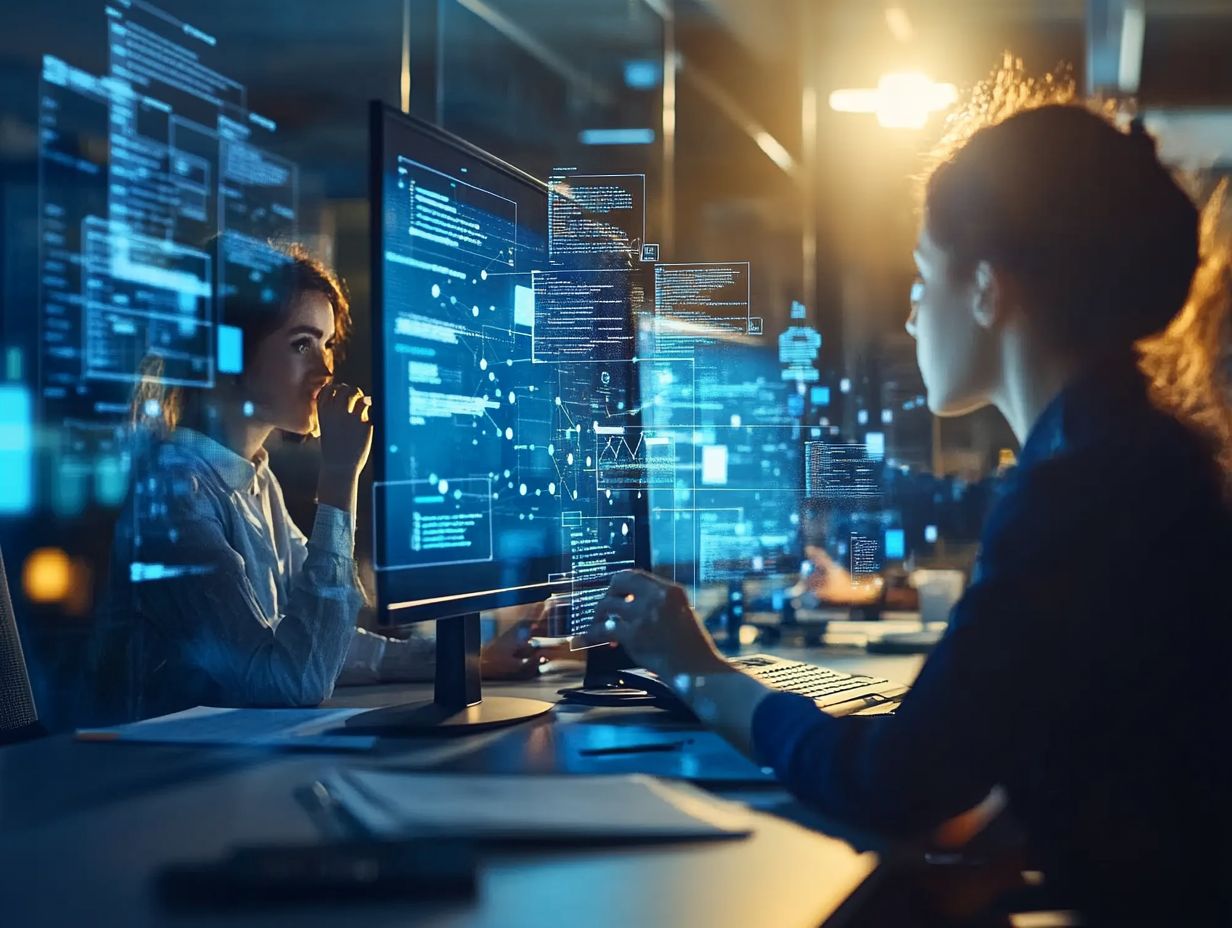
Copyright plays a crucial role in software development. It establishes the ownership and licensing of software products.
This is vital for safeguarding your intellectual property rights as a developer and for optimizing your software revenue.
By understanding copyright, you can ensure that your creations are protected. This allows you to fully capitalize on your hard work.
Ownership and Licensing of Software
Ownership and licensing are key parts of copyright. They define who owns the software and what permissions are granted for its use.
This ownership influences how developers, users, and companies interact in the software world. When you own your software outright, you have exclusive rights to modify, distribute, or sell it. This gives you complete control over your creation.
Licensing agreements whether open-source or commercial offer specific permissions to users. An open-source license might allow anyone to modify the code, sparking collaboration and innovation.
A proprietary license could place stringent restrictions on modifications and sharing. This distinction shapes how businesses allocate resources for software development.
It also affects the overall accessibility of cutting-edge technologies.
Protection of Intellectual Property
Protecting your intellectual property is a top priority as a software developer. Focus on copyright protection, implement robust software security measures, and devise effective piracy prevention strategies.
Protecting your unique innovations secures your revenue and cultivates a competitive edge in a crowded market.
You can leverage various legal frameworks like patents for your novel algorithms and trade secrets for your proprietary code to strengthen your defenses.
Incorporating software licenses is another smart move. It clearly delineates the use rights of your products, making it evident what is permissible.
By actively monitoring your software in circulation and employing technological measures such as encryption and obfuscation, you can significantly reduce the risk of unauthorized use. This ensures the longevity and integrity of your creations.
Navigating copyright issues in software development requires a clear understanding of the role of copyright in video game development and the legal rights that developers hold.
This understanding is essential for ensuring compliance and safeguarding your work against unauthorized distribution. Being well-informed allows you to protect your creations confidently.
Dealing with Infringement and Plagiarism
Dealing with copyright infringement and plagiarism can be challenging. You must take legal measures to enforce your rights and safeguard your intellectual property.
With the rapid evolution of technology and the ease of sharing digital content, the risk of unauthorized use of your original software is more pronounced than ever.
You need to stay vigilant and actively monitor the market for potential infringements. It may be wise to employ tools that automate this process.
Filing a copyright claim can be an effective first step, allowing you to formally address any misuse that arises. Legal avenues act as a deterrent and underscore the importance of originality in your work.
If a company blatantly copies your unique application, you can take immediate action. Protecting your creative innovations is critical in today s fiercely competitive tech landscape.
Stay informed about copyright laws and seek legal advice to effectively protect your work!
Resolving Copyright Disputes
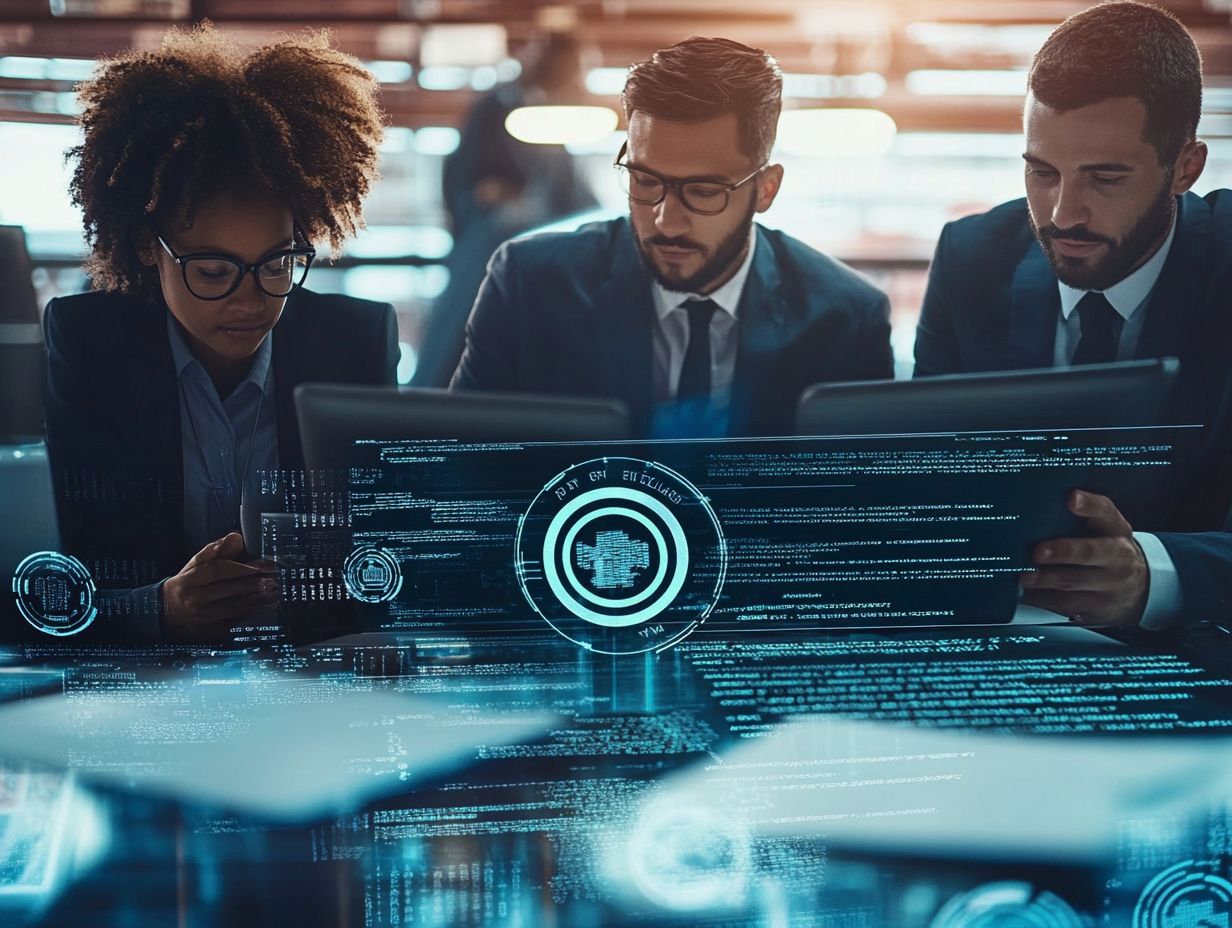
Resolving copyright disputes is vital for protecting software rights. It requires understanding your legal rights and having effective enforcement strategies.
Navigating these conflicts often begins with negotiation, where both parties aim for a mutually agreeable solution. If negotiation fails, you can opt for arbitration. This means an impartial third party will make a binding decision, saving you both time and costs usually associated with litigation.
In a worst-case scenario, disputes could escalate to litigation, where courts examine the validity of claims. For software developers, understanding both sides of these disputes is essential; it guides your strategy and shapes potential outcomes that can significantly affect your projects, innovation, and financial stability.
Best Practices for Complying with Copyright Laws
Adhering to best practices for copyright compliance is crucial for software developers. It safeguards your intellectual property and builds trust with users, elevating the reputation of your software products.
Tips for Developers and Companies
For software developers and companies, implementing effective copyright strategies is essential. Understanding licensing management can significantly enhance your software security and enforcement efforts.
Establish clear guidelines for usage rights to powerfully protect your intellectual property. Ensure that all team members are well-acquainted with these protocols to create a robust framework. Utilizing version control systems helps track changes and maintain documentation for compliance purposes.
Regular software audits help identify potential infringements or licensing mismatches. Incorporating training sessions on copyright laws and best practices fosters a culture of awareness, equipping your developers with the knowledge to navigate these complexities with confidence.
Frequently Asked Questions
1. How does copyright affect software development?
Copyright plays a major role in software development, granting the creator exclusive rights to control its distribution and use. Others cannot copy or use the software without the creator’s permission.
2. Does copyright affect open source software development?
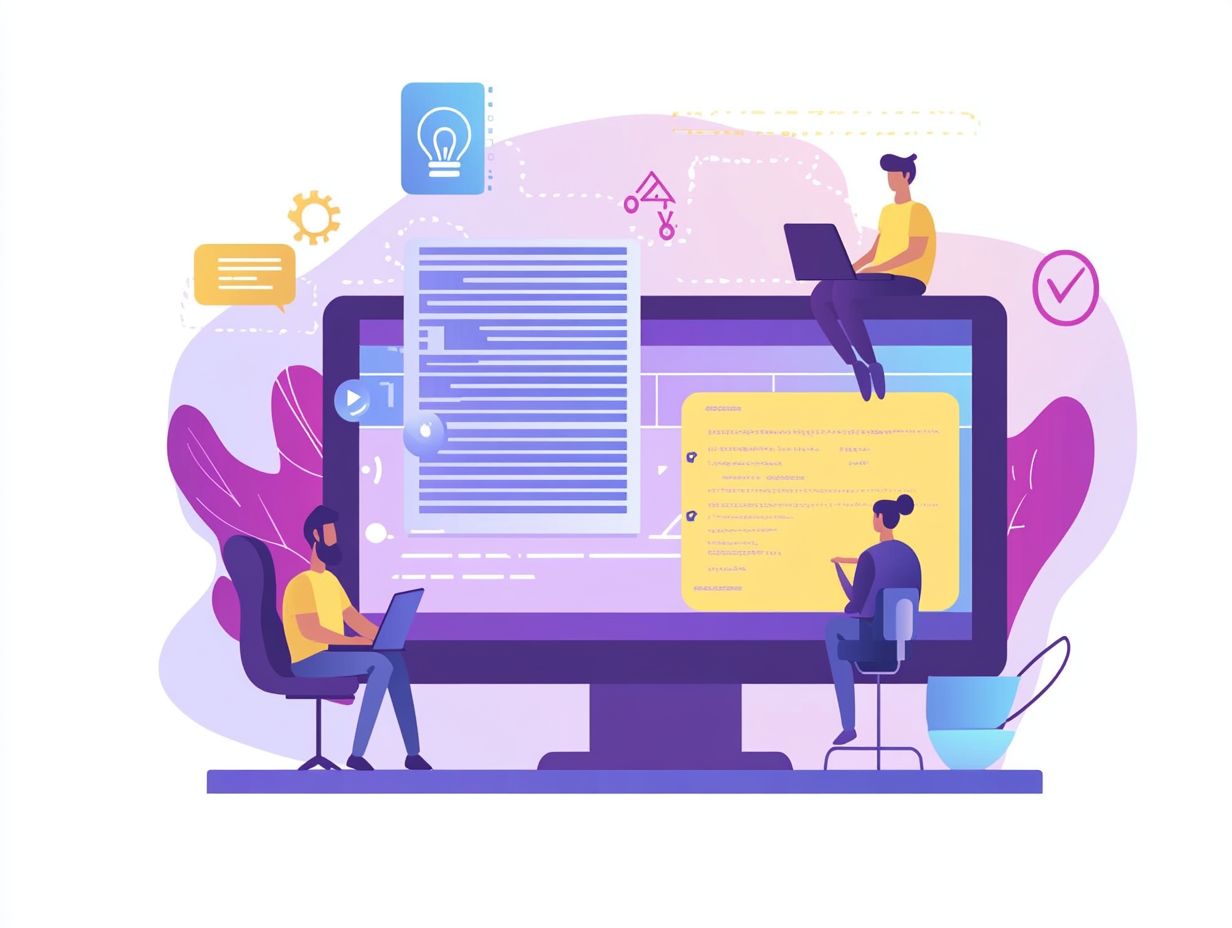
Yes, copyright still applies to open source software. However, open source software is typically released under a specific type of license allowing for its free distribution and modification by others.
3. How can copyright protect my software?
Copyright automatically protects your software as soon as it is created and fixed in a tangible form. Others cannot legally use or distribute your software without your permission.
4. How long does copyright protection last for software?
In the United States, copyright protection for software lasts for the life of the creator plus 70 years after their death. This time frame may vary depending on the country in which the software is created.
5. Can I use copyrighted software in my own projects?
No, it is not legal to use copyrighted software in your own projects without the creator’s permission. Doing so would be considered copyright infringement, leading to legal consequences.
6. How can I avoid copyright infringement in my own software development?
Stay informed about copyright laws to avoid any pitfalls in your software projects. It is crucial to give credit to the original creator and obtain their permission before using any copyrighted material.

